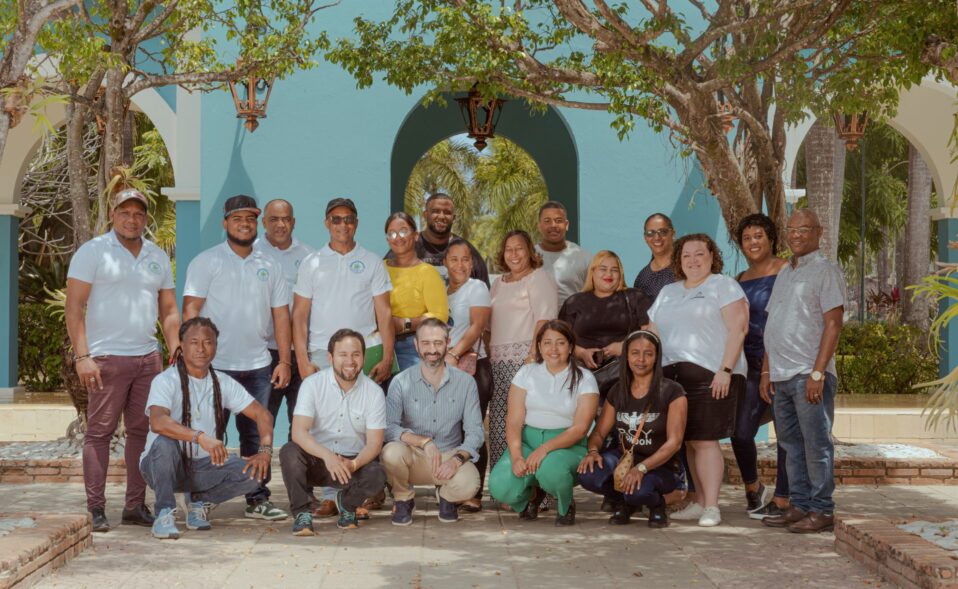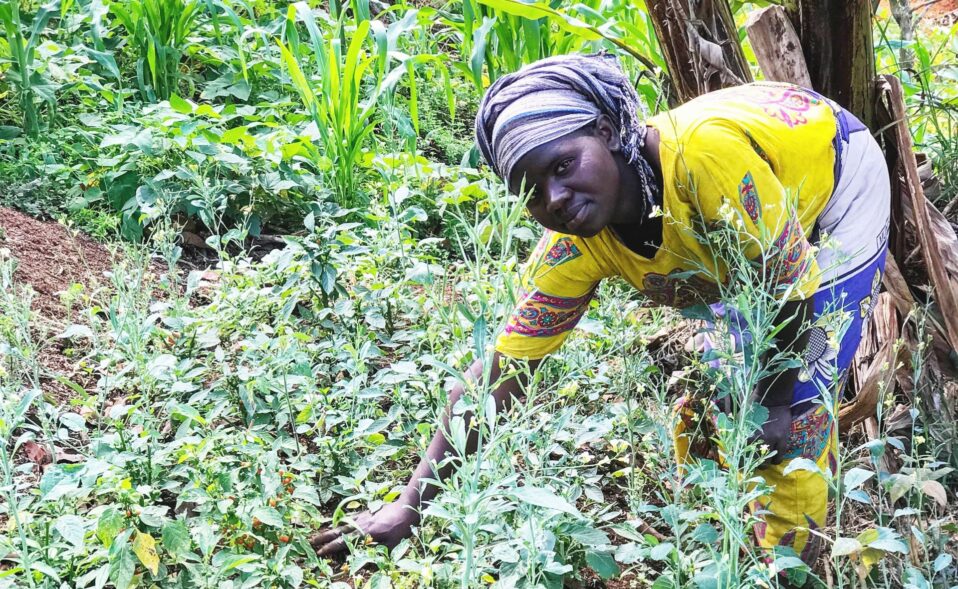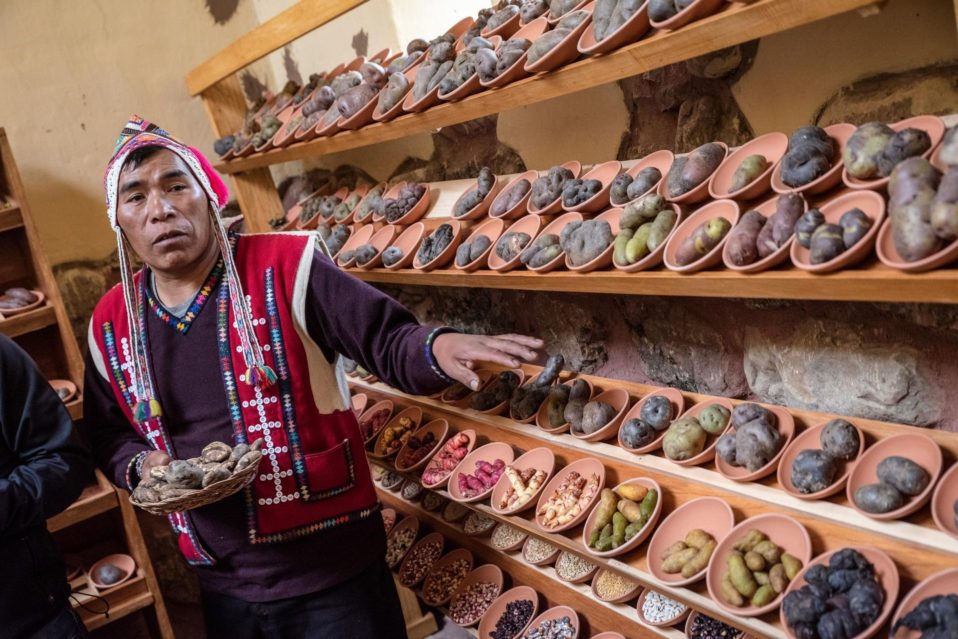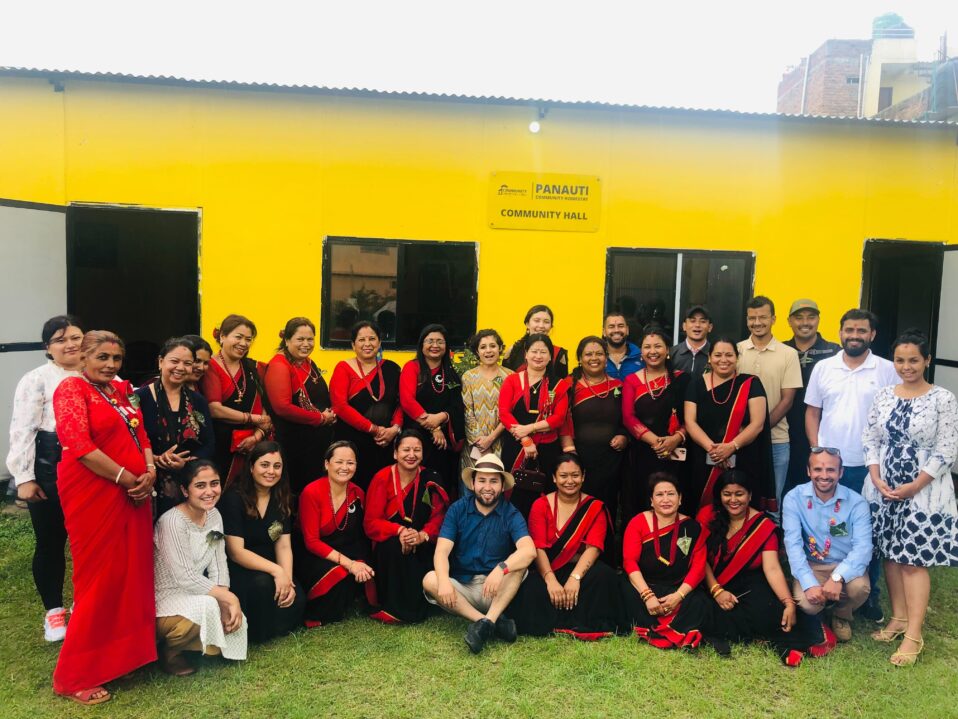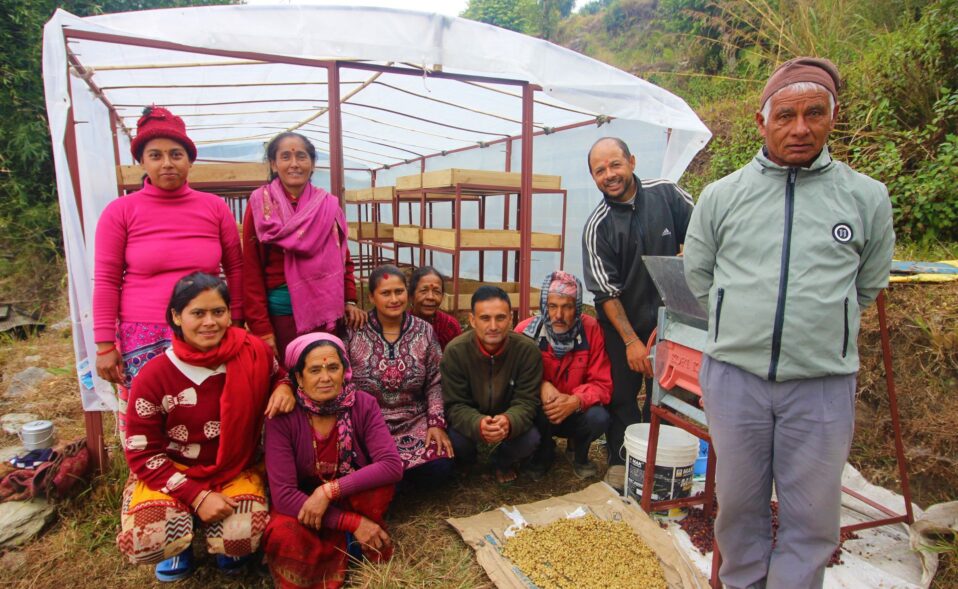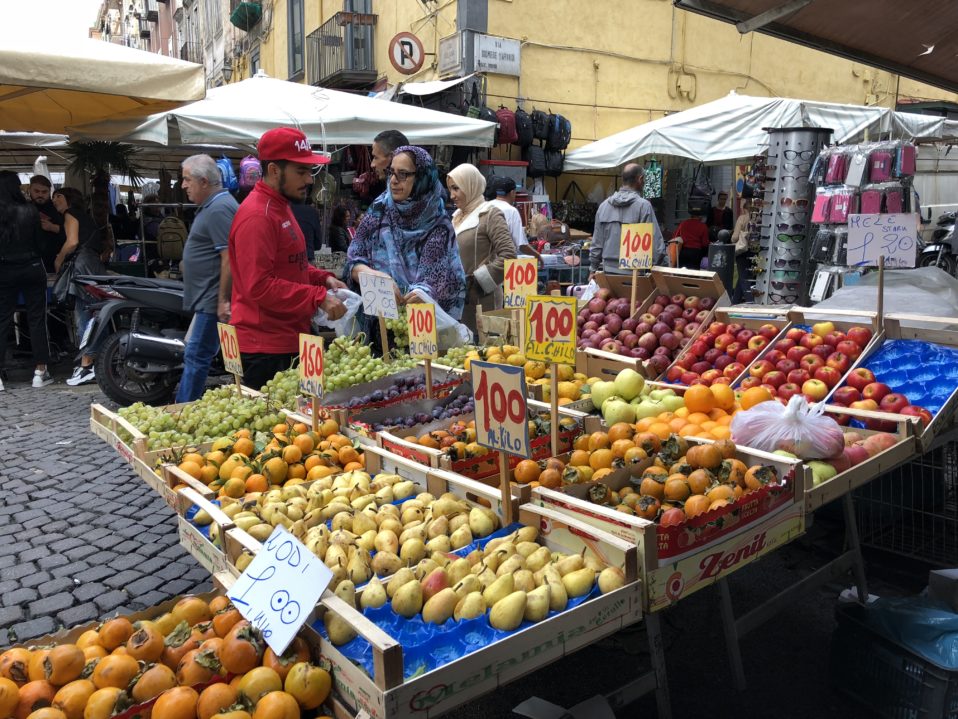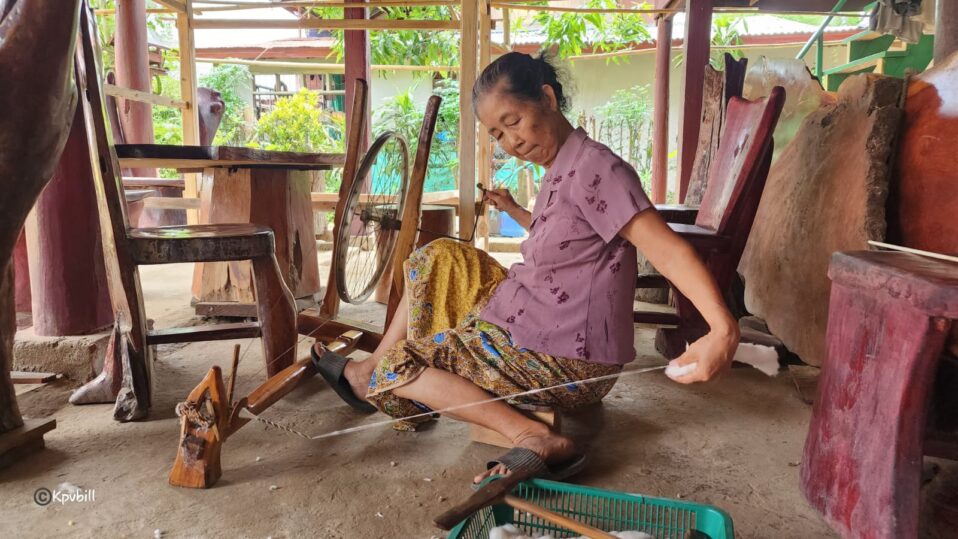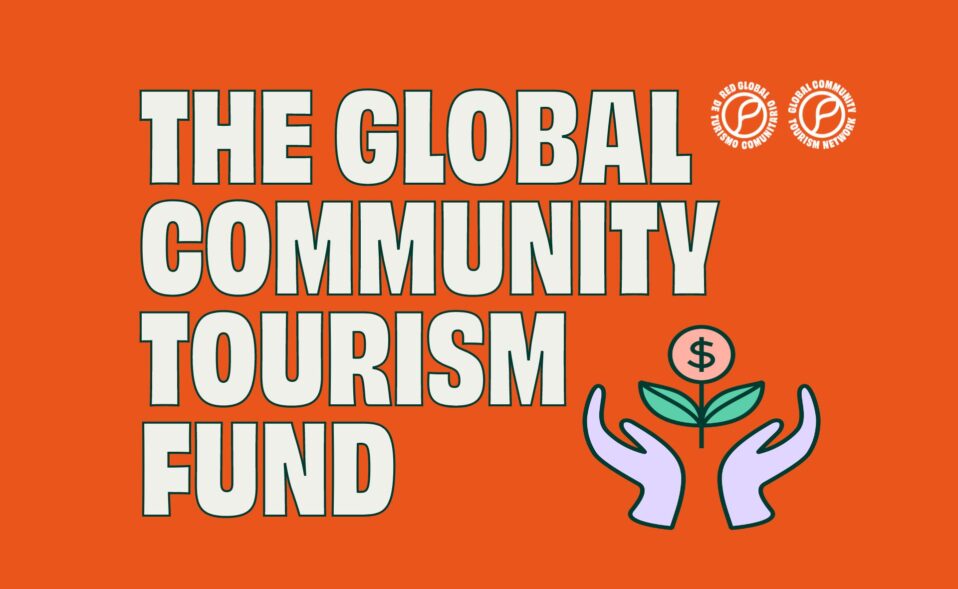Planeterra and Iberostar: A Global Benchmark Partnership
Ever wondered what happens when a renowned tourism company and hotel group joins forces with an impact-driven nonprofit? Well, it's like a ripple effect of positive impact that transforms lives in meaningful and empowering ways and fuels a brighter future for both people and the planet. Iberostar and Planeterra are proving that the wider tourism industry can take action to create win-win situations for communities around the world, for their own businesses, and for travelers. Planeterra & Iberostar: Bold Goals for a Brighter Future The Iberostar Group is a globally recognized company with a rich history in tourism spanning over 65 years. At the core of its operations is Iberostar Hotels & Resorts, a distinguished brand offering over 100 4- and 5-star hotels across 16 countries. Setting the standard for responsible tourism, the Iberostar Group has gained global recognition for its commitment to people and the environment, placing the well-being of both at the forefront of its operations. In line with that commitment, Iberostar, through the Iberostar Foundation, began working with Planeterra to find ways to support the social and economic development of the communities where Iberostar's hotels are located. With Planeterra's expertise in using tourism to uplift communities and Iberostar's vision to promote responsible tourism and community well-being at every step of their endevours, the two organizations have embarked on a partnership to foster community tourism initiatives at destinations where Iberostar is present. The result? Boosting the social and economic development of the local communities while protecting their ecosystems. With the ambitious goals to impact more than 955,000 travelers, involve 35 communities, and improve over 13,000 lives through 36 projects, this partnership is a game-changer for the tourism industry! How does it work? Planeterra works to identify and support communities near Iberostar's properties to help them get started and/or develop their enterprises. This includes providing them with resources, training, and oftentimes, seed grants, which will allow them to create tourism experiences that can be integrated into the hotel's offering. Guests can immerse themselves in these experiences both on and off the Iberostar properties. By incorporating these locally-owned enterprises into the Iberostar value chain, communities have direct and indirect access to the benefits of tourism, opening doors to a thriving market. On the other hand, Iberostar's customers are able to not only experience meaningful encounters with local communities, but they can witness firsthand the transformation that the hotel chain brings to communities and ensure that their stay is becoming a catalyst for economic, social, and environmental development in the destination. In this, both locals and travellers benefit from tourism. The first phase of the project During the first phase of the project, Planeterra and Iberostar worked with three communities in Mexico and the Dominican Republic. Let's take a closer look: Mexico The first project was launched in Mexico. It takes place in the beautiful area of Quintana Roo and it's led by Bejil-Ha Riviera Maya, a community tourism enterprise founded by seven passionate locals from the community of Chemuyil. This initiative was fully developed in close proximity to the Iberostar hotels in the area and it revolves around conserving over [...]
Our Tree Growing Program
Uplifting communities one tree at a timePlaneterra’s Tree-growing Program At Planeterra, we are dedicated to making a positive impact on our planet and its people. Our mission with this initiative is simple yet powerful: "Growing Trees to Uplift Communities" We firmly believe that by planting the right trees in the right places and for the right reasons, we can help communities build sustainable livelihoods, improve their well-being and become more resilient to the growing impacts of climate change. Why Trees Matter Trees are the lungs of our planet, providing us with clean air to breathe. But their importance goes beyond that. Trees play a vital role in restoring our planet, helping us rekindle our relationship with nature and addressing some of the world's most pressing issues, including climate change, deforestation, and poverty. Here's how: Economic BenefitsTree planting and management create income sources and jobs, especially in rural areas with limited employment opportunities, reducing poverty and elevating living standards. Job Creation and Income GenerationPlanting and growing trees provide local employment opportunities, especially for those skilled in agroforestry, horticulture, and forestry. Additionally, communities can explore income diversification avenues such as selling timber, fruits, nuts, or medicinal plants harvested from their cultivated trees. Enhanced Environmental QualityTrees reduce pollution, combat climate change impacts, conserve biodiversity and prevent soil erosion. Food & Water SecurityTrees provide nutrition, especially in food-scarce regions, enhancing the local diet’s quality and diversity through fruit and nut trees. Trees also protect watersheds and enhance water quality by preventing erosion, filtering out pollutants, and providing habitat for animals, resulting in cleaner and healthier water for communities. Climate ResilienceGrowing trees and restoring degraded land build resilient ecosystems, shielding communities from climate change effects like droughts, floods, and soil erosion. Improved HealthTrees provide clean air, lessen heat and UV radiation effects, and encourage physical activity through recreational opportunities. Additionally, the therapeutic potential and health benefits of medicinal plants can enhance well-being by offering natural remedies for various health conditions, such as pain, inflammation, and immune support. Increased ResilienceTrees contribute to community resilience against environmental challenges such as droughts, floods, and extreme weather events. They regulate local climates by offering shade, reducing evaporation, and releasing moisture. Foster connections with natureModern society often encourages people to move away from their traditional, nature-centered beliefs and practices, which can diminish the deep-rooted pride that indigenous communities hold in their connection to the natural world. Supporting communities in tree planting, cultivation, and protection helps rekindle this essential bond with nature, preserving ancestral knowledge and fostering a sense of pride that can be passed down through generations. Our commitment to make a difference Our tree-growing program is both inclusive and participatory. Planeterra collaborates directly with organizations representing local communities to ensure their active involvement in the planning, implementation, and monitoring of the project. This approach guarantees that the initiative is culturally appropriate, socially acceptable, and sustainable over the long term. *Planeterra’s tree-growing program is just one component of our Global Climate and Biodiversity Initiative. Click here to learn more. Growing trees in Partnership with Industry Leaders We are proud to partner with organizations dedicated to creating a better future for all, such as [...]
Kirtipur Community Homestay
Kirtipur Community Homestay Kirtipur, Nepal Impact The Kirtipur Community Homestay, primarily led by indigenous women with some men, offers travelers a unique opportunity to reside in the heart of Nepal's Newari town across five homestays. This initiative extends far beyond mere hospitality; it's about transformation. Women have discovered employment avenues and have played a vital role in preserving age-old culinary traditions of the Newari culture, revitalizing traditional clothing, and safeguarding the unique Newari script. Inspired by these efforts, the youth of Kirtipur are embracing their cultural heritage and seeking to reconnect with their roots, particularly in culinary arts, recognizing the pivotal role food plays in local festivals and celebrations. They are also showing a renewed interest in learning their ancient Newari script. An impressive 10% of the income generated from tourism activities is earmarked for a community fund. After covering expenses, this fund is equitably distributed among all community members, ensuring that the benefits of tourism enrich the lives of everyone. Travelers seeking immersive cultural experiences have the opportunity to participate in a session of Ranjana Lippi (Calligraphy), an ancient Newari script. Beyond calligraphy, the community invites travelers to savor local cuisine, engage in momo making, and embark on captivating walking tours of Kirtipur. 6 Community members directly benefiting 27 Community members indirectly benefiting . Critical Need Nestled approximately 7 km southwest of Kathmandu, Kirtipur is an enchanting town that captivates travelers with its breathtaking views of the Kathmandu Valley and the Himalayas. Historically, Kirtipur was primarily an agricultural community. However, with the loss of agricultural land, the need to create employment opportunities, particularly for women, became increasingly urgent. To address this, the community decided to venture into tourism, but initially, their visitors were primarily day-trippers from Kathmandu. These visitors would explore the Newari town during the day and then return to the city, leaving the local residents with limited benefits from tourism. In response to these challenges, 27 community members underwent training from Nepal Academy of Tourism and Hotel Management (NATHM) in 2019, leading to the establishment of 9 homestays, with 5 of them currently operational. In 2021, their skills were further honed through training and mentorship from the Community Homestay Network, enabling them to expand their offerings to travelers. This expansion includes unique experiences such as Ranjana Lippi (calligraphy), which enriches the cultural encounters available in Kirtipur. Our Involvement Planeterra played a pivotal role in supporting Kirtipur's journey towards offering memorable and culturally rich experiences to travelers. Through a catalyst grant, we provided the means for the women to establish a momo demonstration activity and serve local Newari meals, ensuring the necessary equipment is readily available to welcome and host travelers professionally. Moreover, the Planeterra team has conducted comprehensive training sessions, equipping the Kirtipur community with valuable hospitality skills. This not only enhances the quality of their offerings but also enables them to share their cultural heritage more effectively through storytelling. By focusing on delivering an exceptional meal experience, the community can create an outstanding overall impression for guests, further enriching their range of activities. This partnership also opens the door for the Kirtipur community to integrate seamlessly [...]
Indigenous People’s Wisdom, Climate, Biodiversity, and Tourism
It is undeniable that we find ourselves in the midst of a climate and biodiversity crisis. You may have seen it in the news or even sensed it in your surroundings – the intensifying extreme weather and the alarming decline in biodiversity are threatening our planet profoundly. The responsibility for this situation is mainly a result of human actions or, in many cases, inaction. It is a paradox, however, that those contributing the least to climate emissions are among the hardest hit by its consequences. Indigenous Peoples across the globe have nurtured an intimate bond with nature for centuries, fostering deep connections to the land, water, and ecosystems that are integral to their cultures, languages, and livelihoods. Unfortunately, this connection also makes them highly vulnerable to the harsh impacts of environmental shifts. In a world struggling with the monumental challenges of climate change and environmental degradation, our focus must shift towards Indigenous communities. According to the United Nations, there are approximately 476 million Indigenous people worldwide, encompassing 5,000 distinct cultures across 90 countries. While they represent less than 5% of the global population, they comprise 15% of the world's poorest. Indigenous Peoples are also protectors of an estimated 80% of the world’s remaining biodiversity. Many Indigenous communities have adopted farming techniques that nurture the land and protect biodiversity. Thus, the value of Indigenous knowledge in addressing the global climate crisis is immeasurable. If we aspire to transform our relationship with the land and deepen our connection with the natural world, embracing Indigenous Peoples’ wisdom is imperative. Eva Müller, Director of the Forestry Policy and Resources Division at the UN’s Food and Agriculture Organization, rightly emphasizes that the empowerment of these communities, coupled with their deep-rooted knowledge and forward-thinking strategies, is vital for the survival of future generations – both human and wildlife. Indigenous Peoples are at the forefront of nature protection and biodiversity conservation. At Planeterra, we firmly believe that their insights must be acknowledged and that we must observe and learn from their ways of life. In recent months, we've been working on the implementation of our Global Climate & Biodiversity Initiative, aimed at supporting our community tourism enterprise partners, including Indigenous communities, to innovate new and existing solutions to the crisis with the goal of improving their adaptability and resilience to the impacts of climate change. Learn more about this initiative, here. Embedded within our Global Climate & Biodiversity Initiative is the understanding that the tourism sector has a significant role to play in addressing this unprecedented crisis. Therefore, we are proud to have signed the Glasgow Declaration on Climate Action in Tourism, as it aligns with our vision of how tourism should be and our commitment to doing right by the communities and community tourism enterprises that we partner with. Click here to learn more about our commitment and plans. We will provide further insights into our work regarding this global initiative in the coming months, but in the meantime, we wanted to share an example of one of our Indigenous-led community partners who showcases how tourism can be a powerful tool to support Indigenous communities, safeguard their [...]
No Limits Cafe
No Limits Cafe Ulaan Bataar, Mongolia Impact The Downs Syndrome Association is dedicatedly supporting children living with Down syndrome and their families. They are also actively raising community awareness, advocating for their rights, and providing education. The No Limits Cafe is a remarkable outcome of their efforts, offering training and employment opportunities to young adults with Down syndrome and their mothers, who have historically been excluded from economic benefits. This innovative program is successfully breaking down barriers, showcasing how young people with Down syndrome can contribute to society through tourism, and opening up new opportunities for all while also enriching the local tourism industry. The income generated from tourism will not only aid the Downs Syndrome Association in maintaining the stability of their operations but will also provide salaries for the youth and their mothers, serving as a powerful motivation. The youth are already planning how to invest their earnings from tourism, which demonstrates the positive impact of this initiative on their lives. 10 Youth employed 10 Women employed . Critical Need In Mongolia, only a small percentage of differently-abled individuals in the labor force are employed. Sadly, families and especially mothers with children and youth with Down Syndrome often face discrimination and are deprived of employment opportunities and essential training to earn an income. The Downs Syndrome Association is determined to change this situation by offering vocational training for adults, schooling for children, and even providing a braille library to enhance employability. Through their barista program, trained baristas can now serve coffee with pride. Tourism can serve as a powerful alternative to empower differently-abled youth while providing the necessary resources for the Downs Syndrome Association to finance their impactful initiatives. Our Involvement Planeterra provided a grant to establish and fully equip the No Limits Cafe. In collaboration with our local strategic partner GER to GER, we conducted training on how to create a tourism experience using the valuable resources from the Planeterra Online Learning Hub. This ensures that the team at No Limits Cafe is well-prepared and confident in hosting travelers. Planeterra also facilitated a connection between No Limits Cafe and one of our corporate partners, ensuring a consistent flow of customers that enables them to sustain a steady income through tourism. Come, grab a coffee, and a snack at No Limits Cafe while learning about how this small enterprise is breaking down social norms! . Related projects View all projects > Chocolate de la Cuenca de Altamira (CHOCAL)Restaurante El Manglar View all projects >
Responsible Travel for a Better Future
Written by Aayusha Prasain - CEO, Community Homestay Network Responsible travel emphasizes respect for local communities, cultures, and the environment while exploring new destinations. It encourages travelers to make conscious choices that have a positive impact, such as supporting local businesses, minimizing their carbon footprint, and preserving natural and cultural heritage. By practicing responsible travel, individuals can contribute to sustainable development, foster cross-cultural understanding, and leave a lasting legacy for future generations to enjoy. However, with the looming threat of climate change, having a better sustainable future for the next generations seems uncertain. Nevertheless, it is just not enough to be uncertain, having an action to mitigate it is very important. When we encounter terms like climate action and biodiversity crisis, we often come across complex concepts that may be challenging for the general public to comprehend. However, it is crucial for everyone to understand and address climate action since it is a shared responsibility that affects each and every one of us. Strengthening Community Tourism In an effort to promote community tourism and address pressing environmental issues, Planeterra, a pioneer in community tourism, organized a peer-to-peer learning workshop for its Nepal partners. The workshop aimed to facilitate discussions on climate action, the biodiversity crisis, and the importance of local solutions. As part of its commitment to supporting community tourism enterprises, Planeterra established the Global Community Tourism Network (GCTN) during the pandemic, with the goal of breaking down barriers in the tourism marketplace and enhancing the capacity, quality, and accessibility of community tourism worldwide. Recognizing that addressing climate action requires collective efforts, we, Community Homestay Network (CHN) as a strategic partner of the GCTN here in Nepal joined forces to co-plan and co-execute the workshop, held on June 27, 2023. The session aimed to foster engagement and knowledge-sharing among various stakeholders in Nepal, while promoting best practices in community tourism and addressing the urgent challenges of climate change and biodiversity loss. During the session, participants from different community-based tourism enterprises such as Social Tours, Hands on Institute, Girls Empowered by Travel, Nagarkot Community Homestay, Kirtipur Community Homestay, Panauti Community Homestay and Panuati Bike Station had the opportunity to learn and share about successful models of community-based tourism. They delved into topics such as how to effectively run a community-based tourism experience and understand its wide-ranging impacts and ripple effects. The discussion emphasized the role of community tourism in addressing the ongoing climate action and biodiversity crisis. By adopting sustainable practices, community tourism can become a catalyst for positive change, promoting responsible travel and mitigating environmental impacts. The discussion was further facilitated by a collaborative learning and problem-solving process where participants were engaged in a workshop. The workshop also explored the role of the GCTN in mitigating these challenges. By fostering engagement and providing a platform for knowledge-sharing, the GCTN can contribute to the growth and sustainability of responsible and ethical travel. The partnership between the GCTN and CHN presents an exciting opportunity to harness the power of community-based tourism in addressing the ways to build responsible travel and work on climate action and biodiversity crisis. Through meaningful engagement and the [...]
Traveling off the beaten path with Sharing Seeds in Sarangkot Pandeli
Written by Eliane - Student Researcher from Sharing Seeds Traveling sustainably and responsibly has been trending within the past few years. An awareness regarding cultural loss and increasing levels of pollution due to mainstream tourism has been raised and tour operators as well as travelers are longing for a change. But how can one travel sustainably? One option to do so can be found in Sarangkot Pandeli the beautiful village near the tourism capital of Nepal, Pokhara City which is a gateway to the world-famous Annapurna conservation region. Sarangkot, a small village close to Pokhara, Nepal, is known for its beautiful sunsets and the view over Pokhara and Phewa Lake. However, if you look beyond the well-known sights and mainstream tourist spots, you can learn much more about the community, culture and the production of local products. Explore Evenmore Tour and Travels, in partnership with not-for-profit Sharing Seeds, aims to promote sustainable tourism in this area by focusing on guiding visitors off the mainstream routes and towards the local communities. Knowing what is best for the community, Aabiskar Thapa, Founder and Managing Director of Sharing Seeds, and his team run three projects that concentrate on the production of local products, like coffee and honey and work to help women gain independence in their communities. . More information on some of Sharing Seeds’ Projects: Organic Arabica Coffee Farming Project: Goal: Sustainable, local production of coffee; creating job opportunities How: Providing training and support to local farmers in coffee production Progress: 600 coffee tree plantations have already been planted in cooperation with 95 farmers Recyclable Handicraft Project: Goal To empower local women to achieve financial independence How: Providing basic sewing training for women Progress: 40 women have already been trained through the program Organic Bee Farming Project: Goal: Sustainable honey production How: Explain the importance of the role of bees to farmers Progress: 70 bee hives have been installed in cooperation with 5 bee farmers In collaboration, Explore Evenmore Tour and Travels and Sharing Seeds developed a tour that combines hiking with learning to create added value for the visitors as well as the community in Sarangkot. The popular tour Secrets of Sarangkot: Arabica Coffee experience and local life guides the visitors along the beautiful Phewa Lakeshore, through the community jungle and stops at every project. While visiting the projects the visitors get in-depth insights into the local life and working processes of local products while enjoying the beautiful landscape all along Pokhara. Through observation and conversations with locals, the visitors are immersed in the Nepalese culture and understand the impact that local organizations have on these communities. Furthermore, there is added value for the community through the exchange of knowledge with the tourists which helps to contribute to sustainable development in Nepal. To sum up, Explore Evenmore Tour and Travels, in collaboration with Sharing Seeds, offers a unique experience to visitors while raising awareness about the local culture, food and products and the importance of maintaining them. There is also added value for the community through the exchange of knowledge with the tourists which helps contribute to sustainable development in Nepal. [...]
Sustainable Travel Close to Home
Written by Ainsley Lawrence Sustainability is more than just a hot topic of conversation these days. According to a recent Nielsen study, 78% of U.S. consumers say a sustainable lifestyle is important to them. Reducing waste, using less energy, and recycling are all important. They are also easy habits that people can incorporate into their everyday lives. Unfortunately, travel and sustainability don’t often go hand-in-hand. We tend to think of things like carbon emissions from cars and planes, the waste produced by traveling, and the people involved that are creating even more pollution simply by having to go to work each day. But sustainable travel is possible, especially when you choose to stay close to home. Whether you have a travel bug or you want to take a family vacation while doing something good for the planet, you can use a few effective sustainable techniques to keep things “green” while you hit the road. Let’s take a look at a few of those tips and tricks, so you can enjoy your next trip in this post-pandemic society. . Cutting Down on Emissions While traveling via car already creates fewer emissions than traveling by plane, there are still things you can do to cut down on your carbon use while you hit the road. First, before you leave on your trip, make sure your vehicle is in top shape. Things like maintaining proper tire pressure, making sure the engine is tuned up, and fixing any other mechanical issues in your vehicle will help to ensure it produces as little pollution as possible. While you’re driving, you can also reduce pollution and travel more sustainably by: Minimizing travel items; Developing a strategy so you can drive the most efficient route; Carpooling; Towing a trailer instead of overloading your car. Drive slower and smarter while you’re on the road. If you’re not in a hurry, don’t keep your foot glued to the gas pedal. Frequent acceleration not only burns more fuel, but it creates more emissions. Instead, go at a leisurely pace. You’ll get more out of your gas tank and release less pollution into the air. You can also choose to live more sustainably on the road. Try to avoid using plastic products. Eat locally. Don’t leave any pollution behind if you stay overnight somewhere, and limit your water usage. These small actions can add up quickly, especially if you travel a lot, and they can really help to give back to the environment. Getting Back to Nature Traveling by car to tourist areas and famous sites can be fun, and there’s no reason you shouldn’t enjoy those special attractions with your family or friends. But, one of the best options for sustainable travel, especially close to home, is to get back to nature and go camping. Spending time in nature is also a great way to gain a greater appreciation for the outdoor world, and it can also do wonders for your mental health. In fact, doctors are writing prescriptions for nature, as outside time has been demonstrated to lower stress while increasing physical activity. No matter where you live, there’s [...]
Ban Ou Community Tourism
Ban Ou Community Tourism Luang Prabang, Lao PDR Impact Ban Ou Community Tourism engages ten out of the 60 families in directly offering tourism experiences to travellers. The community empowers women to actively participate and lead in tourism activities, including demonstrating the making of Laos rice noodles, weaving, and providing authentic meal experiences. Additionally, the involvement of elderly community members adds a special touch to the traditional Baci ceremony, a warm welcome deeply rooted in Lao culture. The ultimate goal is to uplift the community through tourism embracing their traditional culture. 10 families benefitting 50 community members indirectly benefitting . Critical Need Luang Prabang is one of the main tourist attractions in Lao PDR, with travellers often placing it high on their must-visit list. Ban Ou is a small village comprising 60 families whose livelihoods revolve around farming, fishing, and traditional crafts such as silk and cotton weaving, bamboo weaving, and blacksmithing. The village is very charming, situated between picturesque mountains and the Mekong River. Although many tour buses pass through Ban Ou en route to the renowned Kuang Si waterfall, a key attraction in Luang Prabang, the local community has not benefited from these visits. Until recently, tourism was a novel concept for them, and they had not engaged with any tour companies. Our Involvement Recognizing the immense potential of Ban Ou Community Tourism, Planeterra embarked on a partnership to empower them in hosting travellers. We worked closely with them to enhance their readiness and provide valuable support. This included comprehensive training to ensure they were equipped with the necessary skills and knowledge. Additionally, we focused on improving key infrastructure elements, such as the dining area and waste management facilities. We also helped them set up the outdoor kitchen, which not only enriched the tourism experience but also highlighted the local culinary traditions and flavours. Additionally, we connected Ban Ou Community Tourism with one of our corporate partners to create a consistent influx of travellers, generating a sustainable income stream that would benefit the entire community. . Related projects View all projects > D’danau HomestayYimsoo Cafe Bangkok View all projects >
Announcing the Global Community Tourism Fund 2023 recipients
Planeterra is thrilled to announce the recipients of the Global Community Tourism Fund 2023! The Global Community Tourism Fund (GCTF) is one of Planeterra’s cornerstone initiatives to foster entrepreneurship and innovation for community tourism enterprises worldwide. Through this program, Planeterra provides small grants of up to $3,000 USD to community tourism enterprises, along with community-specific training and mentorship. The GCTF aims to assist local entrepreneurs and communities in scaling up and improving existing tourism experiences. We received numerous applications and our team was happy to read through the great proposals from our community partners all around the world. Deciding on this year’s recipients was not easy, but after careful evaluation, Planeterra has selected 18 organizations. Keep reading to find out more about their inspiring work! Thanks to the generosity of our donors and supporters, we were able to more than double the number of beneficiaries compared to the inaugural edition of the GCTF in 2022. Read more about the fund recipients from last year, here. The Americas Centro de Turismo Comunitario La Moya (Comuna La Moya, Chimborazo Province, Ecuador) La Moya, an indigenous community of Puruhá heritage, is made up of 50 families who have found a way to increase their income by sharing their knowledge in medicine, gastronomy, customs, and traditions rooted in their culture and worldview. Located 3,255 meters above sea level, in the heart of the Ecuadorian Andes, they offer unique tourism experiences that revolve around the sacred relationship between humans and the majestic Chimborazo mountain. Visitors have the opportunity to stay in their accommodations and explore the rich craftsmanship of the local women, who specialize in weaving camelid wool. Through their work, La Moya also aims to raise awareness about the importance of preserving the páramo ecosystem, showcasing the harmonious coexistence between nature and their community. Learn more about their work, here. Asociación de Artesanas de Chorrera (Chorrera, Juan de Acosta, Colombia) Asociación de Artesanas de Chorrera is a woman-led association of 130 artisans who specialize in crochet knitting, storytelling, and immersive experiences that invite travelers to, for example, "be an artisan for a day." They focus their work on preserving ancestral knowledge through their rich artisanal culture and community tourism initiatives. They see tourism as a way to keep their traditions alive and through the fund, they seek to improve their current marketing material, including content for their website and social networks. Learn more about their work, here. Cooperativa de Agroturismo Red de Turismo Campesino (San Carlos, Salta Province, Argentina) The Rural Community Tourism Network Cooperative (Cooperativa Red de Turismo Campesino) was established in 2008. They sell handicrafts, agricultural products, and tourism services as a means to protect their cultural heritage. This initiative is managed by 25 local families who are also small-scale producers from rural communities in the beautiful Calchaquí Valley. Learn more about their work, here. Asociación de Mujeres María del Mar Bocagrande (Tumaco, Nariño, Colombia) Maria del Mar Bocagrande is a woman-led association that operates on a beach facing significant erosion challenges. Their main goal is to create economic alternatives for their community, especially for young single mothers. They see tourism as a [...]


